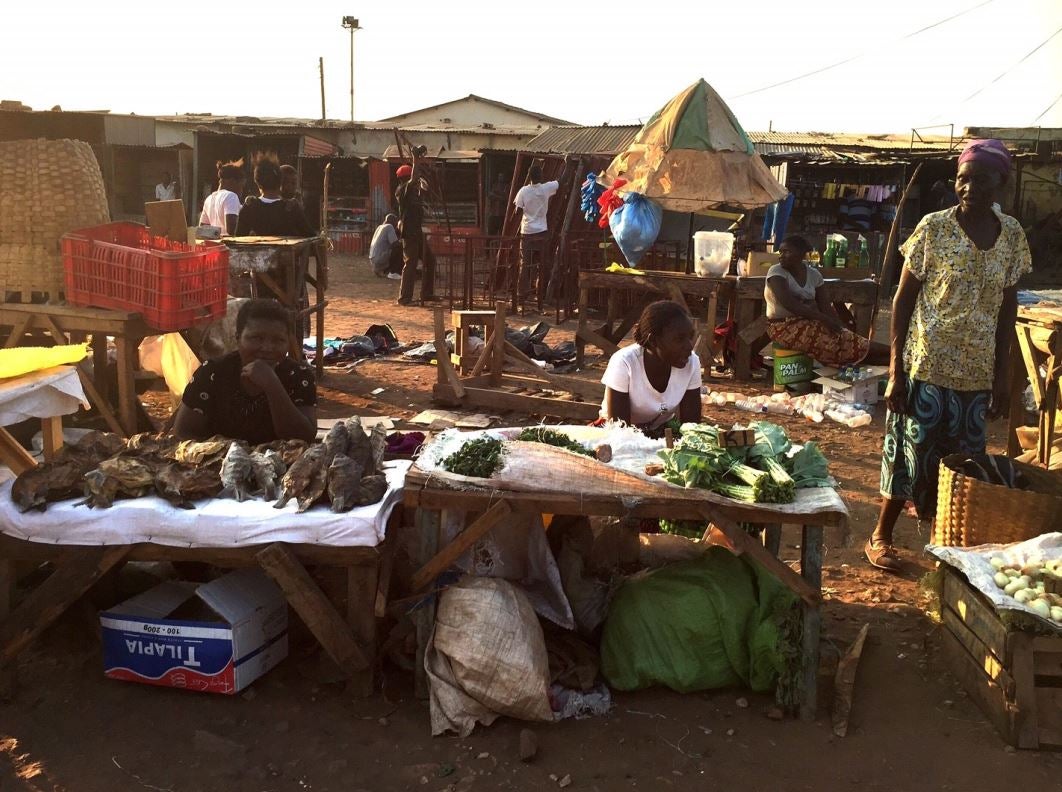
Zambia is currently under pressure to increase the pace of the economic transformation to create more productive jobs. Despite rapid economic growth from 2000-2013, the country is struggling to provide the kind of jobs needed to help spur sustainable growth and development. The landlocked country is also one of Africa’s youngest countries by median age, and youth (aged 15-24) who are a significant and increasing share of the working population, are finding it hard to get jobs.
The World Bank Jobs Group’s Zambia team recently met with government, private sector, development partners and civil society representatives to share the work it has been doing on jobs diagnostics and value chain analysis, and consult on the preparation of an action plan for jobs based on these analytical pieces. This is part of the Let’s Work Program, which is funded by a grant from the World Bank’s Jobs Umbrella Trust Fund, and is supported by the Department for International Development/UK AID, and the Governments of Norway, Germany, Austria, the Austrian Development Agency, and Swedish Development Agency SIDA.
According to the preliminary findings in the forthcoming Jobs Diagnostics report on Zambia, even though the country’s economy has grown enough to create employment for its youth population, it has not produced enough good jobs to match the rapidly growing population segment. New jobs are badly needed for young people out of agriculture, in towns and cities, and into higher productivity occupations. The report also mentions that while the creation of formal jobs across sectors and urban areas has begun, it remains slow and for many workers moving into informal services, hours worked appears to have fallen.
The Diagnostic raises the key question of whether Zambia can invigorate the rural economy through agri-business and agricultural productivity growth. Agro-based products can help diversify exports away from copper, and help Zambia leverage its proximity to markets over its many borders—eight to be exact. Half of Zambia’s non-mining exports from 2008-14 were agro-based, and half of all food and animal exports were sold within sub-Saharan Africa. In addition, agro-processing firms tend to be located in areas of high poverty density around the main cities of Copperbelt, Lusaka and Southern Provinces. Hence integrating smallholders into the supply chains of leading firms in these areas could – in principle - increase rural incomes as productivity increases.
According to the Jobs in Value Chains analysis, there is strong potential for jobs through backward linkages via domestic input production – job creation in poultry and aquaculture sectors via backward linkages in feed and farming, and via building materials in construction. However, the rise in input and production costs resulting from the economic downturn have led to higher commodity prices, which has contributed to uncompetitive pricing and inadequate quality that fails to meet the standards major buyers. This can be countered by reducing raw material costs through reliable access to energy, affordable access to finance, and improved on-farm skills to boost production, all of which help develop agribusiness supply chains with high potential for creating direct and indirect jobs, particularly for smallholder farmers and in rural, lagging regions.
Based on the analytical work, the team proposed a preliminary Jobs Action Plan to help increase the number of formal jobs, improve the quality of informal jobs, and extend access to jobs for vulnerable groups, including youth and women. To do this, the team focused on three types of policies:
- Getting the macro/fundamentals right: Zambia needs to create a “soft landing” for jobs during a period of fiscal adjustment; additional investments are needed in infrastructure and human capital development combined with an increased tax base to support competitiveness / creating an environment that’s easy for firms to do business; shifts on taxation away from labor and capital towards expenditures – including well-targeted subsidies for formal jobs and capital invested in labor-intensive sectors; and labor market reforms.
- Improving current labor policies: Labor policies are needed to encourage secondary education to take advantage of the skills premium and skills training in the Technical Vocational Education Training (TVET) system.
- Last but not least, improving regional/sectoral policies: Developing value chains to improve jobs for smallholder farmers can occur through physical (e.g. energy, infrastructure) and market infrastructure (e.g. value-adding services).
The Jobs Diagnostics and Value Chain Analysis on Zambia are currently being finalized and will be ready for dissemination in February 2017.
Follow the World Bank Jobs Group on Twitter @wbg_jobs.


Join the Conversation